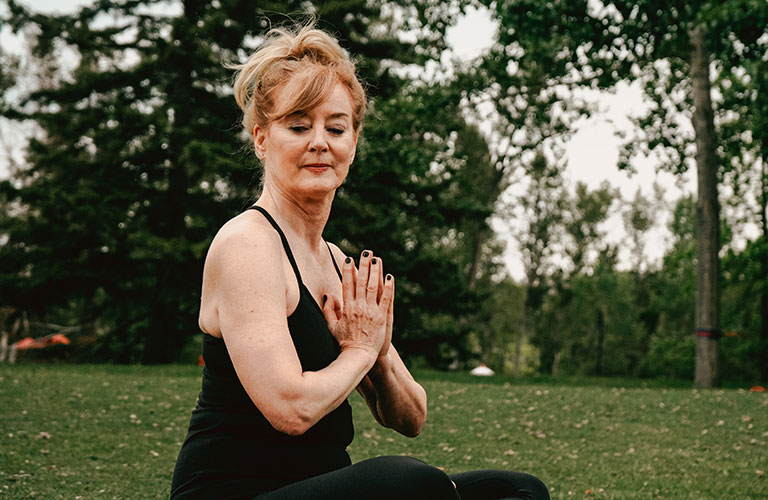Exercise during menopause and its benefits
Regular exercise is an essential part of maintaining your health through the menopause transition. There is strong evidence to suggest you should make exercise a priority during your midlife as it can help to ease the menopause symptoms you are experiencing.
During menopause, as estrogen levels drop, the risk of developing heart disease and osteoporosis increases. Some women gain weight, particularly around their waistline. Exercise can help to minimum these risks.
Two types of exercise are generally recommended for menopausal women – strength training and aerobic exercise.
Strength or resistance training helps combat the risk of osteoporosis. It also burns body fat and helps to give your metabolism a boost. Osteoporosis most commonly occurs at the hips and spine, so it is important that your weight-bearing exercise targets at these areas.
Lunges, squats, resisted rowing and push ups are all forms of suitable strength training. High impact exercises, including jumping and running, also build strength, as does biking, swimming, and dancing. You don’t necessarily need a gym full of machines and weights, you can use your body weight.
Aerobic training raises your heart rate and is good for your heart health. Chances are, if the physical activity you’re undertaking leaves you feeling breathless, then the activity is good for you.
Some of the exercises that build strength – like running, biking, swimming, and dancing – also double as aerobic activity. You can make small changes to the way you approach your everyday life too, to get more aerobic activity into your day.
Take the stairs instead of the lift or escalator. If you take the escalator, walk up the steps rather than standing still. Get off the bus or train one stop before home to enjoy a longer walk. Mow the lawn. Vacuum the floors. Next time you plan to meet a friend for coffee, suggest you go for a walk together first.
Try to complete 30 minutes of exercise at least three days per week. Two strength training sessions and one aerobic training session is a good place to start. If you can manage more than that, the benefits you reap from the activity will only be enhanced.
